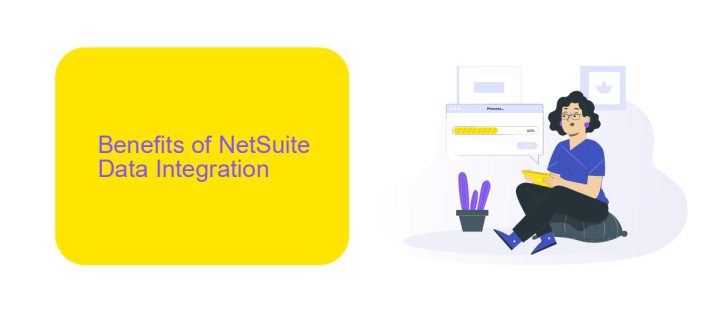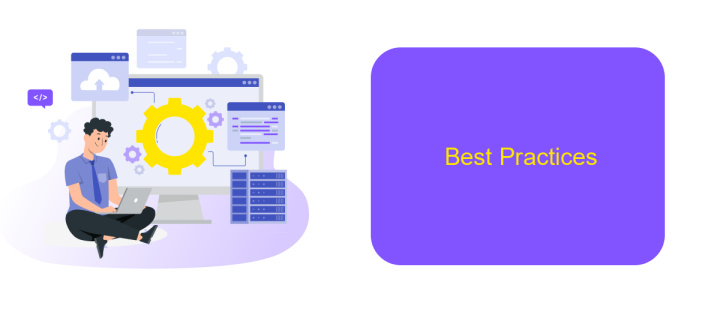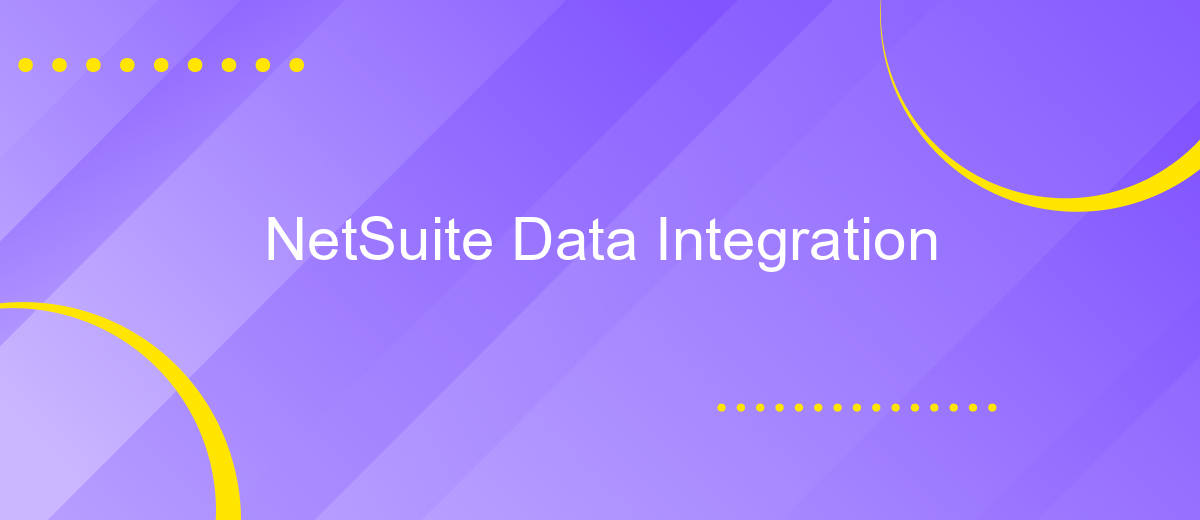NetSuite Data Integration
NetSuite Data Integration is a critical component for businesses aiming to streamline operations and enhance decision-making. By seamlessly connecting NetSuite with various data sources, companies can ensure real-time data flow, improve accuracy, and reduce manual effort. This article explores the best practices, tools, and strategies for effective NetSuite Data Integration to maximize your enterprise resource planning (ERP) system's potential.
Introduction
NetSuite Data Integration is a crucial aspect for businesses looking to streamline their operations and ensure seamless data flow between various systems. By integrating NetSuite with other platforms, companies can automate processes, reduce manual errors, and enhance overall efficiency. This integration allows for real-time data synchronization, providing a unified view of business operations.
- Automated data transfer between systems
- Reduction of manual data entry errors
- Real-time data synchronization
- Enhanced operational efficiency
One of the tools that facilitate NetSuite data integration is ApiX-Drive. This service allows businesses to easily connect NetSuite with various other applications without the need for coding. By using ApiX-Drive, companies can set up automated workflows, ensuring that data is consistently and accurately transferred between systems. This not only saves time but also helps in maintaining data integrity across all platforms.
Benefits of NetSuite Data Integration

NetSuite Data Integration offers numerous benefits that streamline business operations and enhance decision-making. By integrating NetSuite with other systems, businesses can automate data flow, reducing manual data entry and the risk of errors. This integration ensures real-time data synchronization, providing accurate and up-to-date information across all platforms. Consequently, companies can make informed decisions quickly, improving overall efficiency and productivity.
Moreover, services like ApiX-Drive facilitate seamless NetSuite Data Integration by offering easy-to-use tools and pre-built connectors. These features enable businesses to set up integrations without extensive coding knowledge, saving time and resources. ApiX-Drive supports a wide range of applications, ensuring flexibility and scalability as your business grows. By leveraging such services, companies can optimize their workflows, enhance data accuracy, and ultimately drive better business outcomes.
Common Challenges

Integrating NetSuite with other systems can present several challenges that organizations need to address to ensure seamless data flow and operational efficiency. These challenges often stem from the complexity and diversity of the systems involved.
- Data Consistency: Ensuring that data remains consistent across all integrated systems can be difficult, especially when dealing with large volumes of data.
- Real-Time Synchronization: Achieving real-time data synchronization between NetSuite and other platforms is often a technical hurdle that requires robust solutions.
- Security Concerns: Protecting sensitive data during the integration process is paramount, necessitating stringent security measures.
- Customization Needs: Tailoring integration solutions to meet specific business requirements can be time-consuming and complex.
- System Downtime: Minimizing downtime during integration is crucial to avoid disruptions in business operations.
To mitigate these challenges, leveraging integration platforms like ApiX-Drive can be highly beneficial. ApiX-Drive provides a user-friendly interface and powerful tools to facilitate seamless data integration between NetSuite and other systems, ensuring data consistency, real-time synchronization, and robust security measures.
Best Practices

When integrating data with NetSuite, it's crucial to follow best practices to ensure a smooth and efficient process. Begin by thoroughly planning your integration strategy, considering the data sources, transformation requirements, and the frequency of data synchronization. Proper planning helps in identifying potential challenges and addressing them proactively.
Next, focus on data quality and consistency. Ensure that the data being integrated is clean, accurate, and up-to-date. Implement validation rules and data cleansing processes to maintain high data quality. This step is vital for preventing errors and ensuring the reliability of your integrated data.
- Use middleware tools like ApiX-Drive to simplify the integration process.
- Schedule regular data backups to prevent data loss during integration.
- Monitor and log integration activities to detect and resolve issues promptly.
- Ensure compliance with data security and privacy regulations.
Finally, continuously monitor and optimize your integration processes. Regularly review performance metrics and user feedback to identify areas for improvement. By following these best practices, you can achieve a seamless and efficient NetSuite data integration that supports your business goals.


Conclusion
In conclusion, NetSuite Data Integration plays a pivotal role in streamlining business processes and enhancing data accuracy across various platforms. By leveraging robust integration tools, companies can ensure seamless data flow, which is crucial for informed decision-making and operational efficiency. The ability to integrate NetSuite with other systems not only reduces manual data entry but also minimizes errors, thereby saving time and resources.
One such tool that facilitates this integration is ApiX-Drive. It offers a user-friendly interface and powerful features that simplify the integration process, making it accessible even for non-technical users. With ApiX-Drive, businesses can automate data transfers between NetSuite and other applications, ensuring real-time synchronization and up-to-date information. As a result, organizations can focus more on strategic initiatives rather than getting bogged down by data management challenges. Embracing these integration solutions will undoubtedly provide a competitive edge in today’s fast-paced business environment.
FAQ
What is NetSuite Data Integration?
Why is data integration important for NetSuite?
What are the common methods for integrating NetSuite with other systems?
How can I automate data integration between NetSuite and other applications?
What are the challenges associated with NetSuite Data Integration?
Apix-Drive will help optimize business processes, save you from a lot of routine tasks and unnecessary costs for automation, attracting additional specialists. Try setting up a free test connection with ApiX-Drive and see for yourself. Now you have to think about where to invest the freed time and money!

